Bulk Packaged “Label-less” Consumer Goods Catching on in Japan
It could signal a watershed moment in a land known for its excessive packaging and ensure that sometimes less can, in fact, be more.
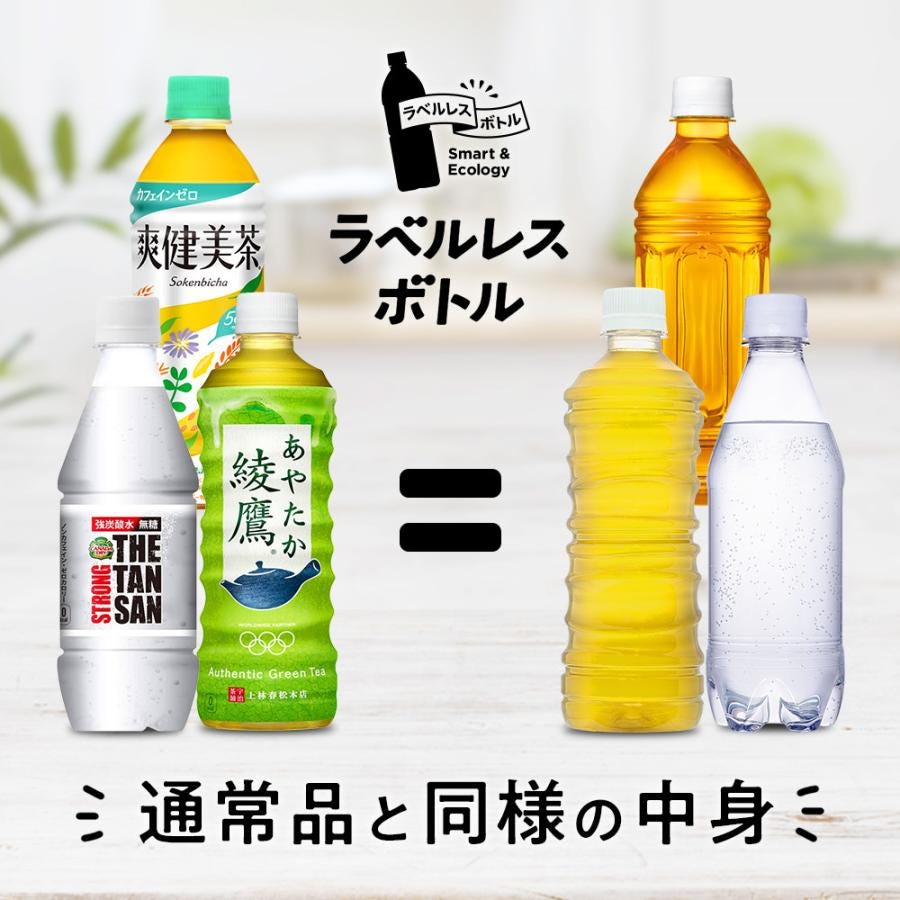
What’s new: To reduce the time and effort required for garbage separation, it is becoming more common in Japan for manufacturers to sell consumer products in bulk without labeling on individual component packaging. So-called “label-less” packing for liquid beverages packaged in polyethylene terephthalate (“PET”) bottles which are made from a type of plastic that is clear, durable, lightweight, and 100% recyclable is achieved by printing the product name, ingredient name, expiration date, and sales destination, which used to be written on the label, on the cardboard case or other outer packaging.
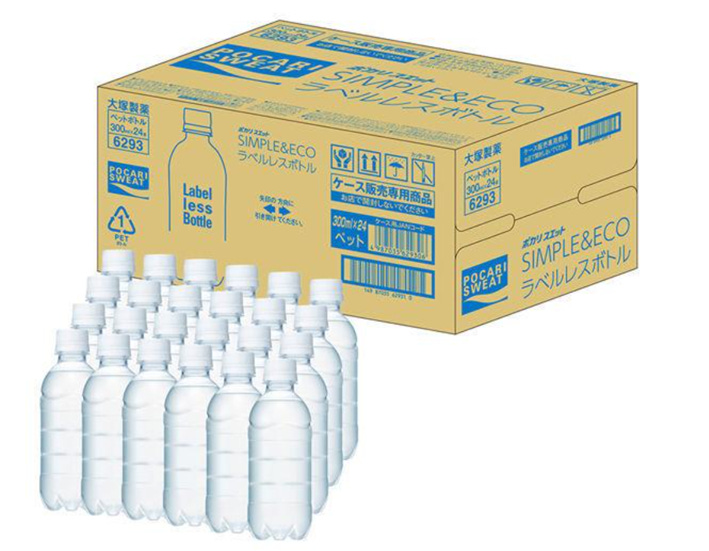
Some products have also achieved a label-less look by placing easy-to-remove stickers with the product name, etc. on the bottle itself, rather than on the cardboard or other box, as shown below.
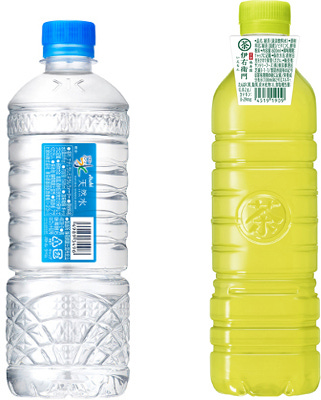
Why it matters: While such news may not seem like a big deal and may elicit no more than a shrug from American shoppers at Costco, in Japan, which is famous for excessive packaging (e.g., individually wrapped cookies are the norm), bulk packaging of consumer goods without individually labeled components represents a sea change. This practice is, moreover, successfully pushing the traditional boundaries of the level of labeling required by law.
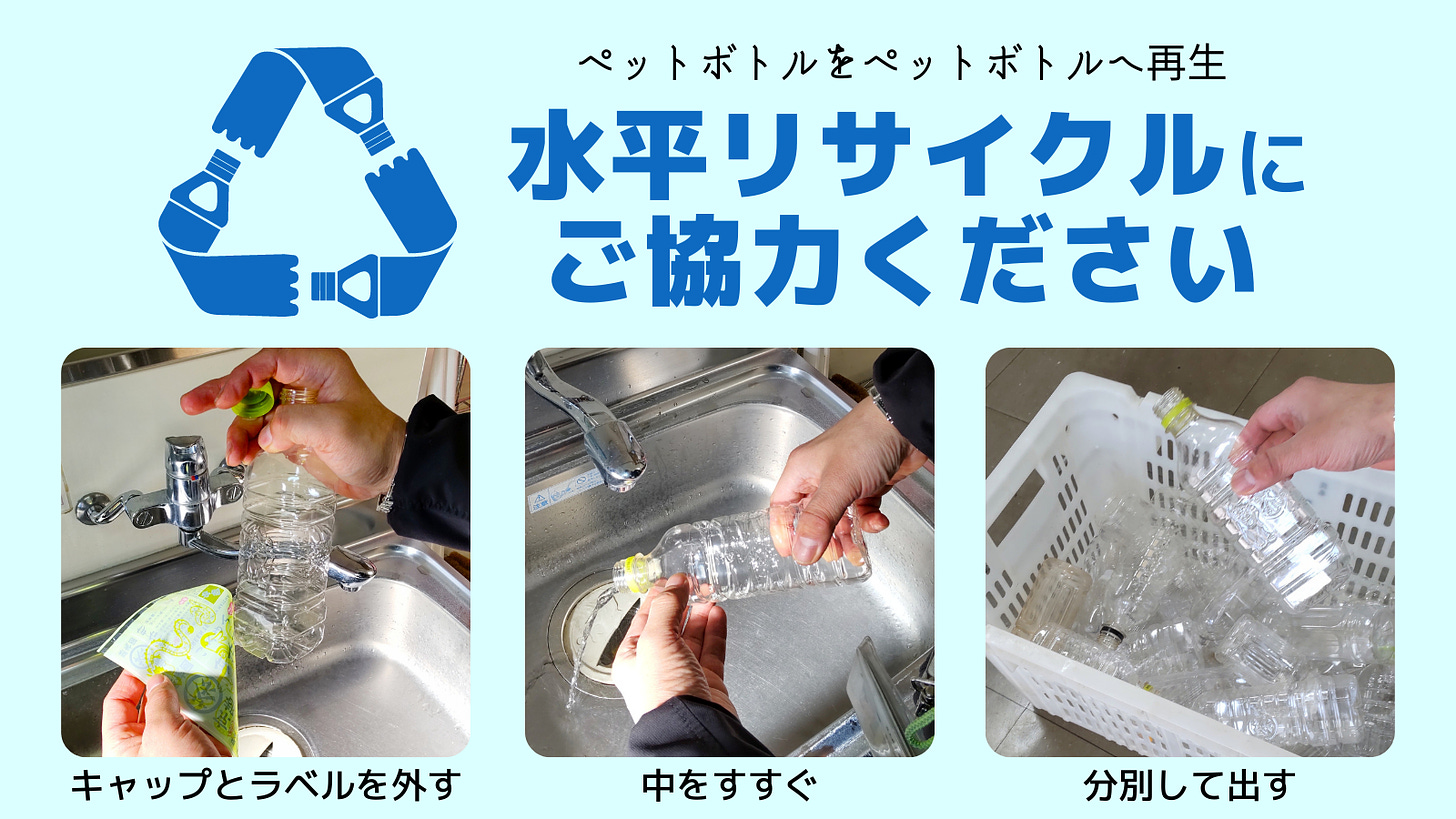
Especially because in Japan it is normal to require the removal of labels from individually packaged items before putting them out for garbage collection for the purpose of making it easier for recycling centers to process these items, “label-less” inner packaging reduces complexity and encourages compliance with recycling rules. It probably helps to reduce costs for manufacturers, as well.
Benefits include the following:
Label-less packaging is environmentally friendly. Labels on plastic bottles are made of plastic, and plastic is derived from petroleum. Eliminating unnecessary labels will, therefore, lead to the reduction of petroleum resources. In addition, marine pollution caused by plastic has become more serious in recent years. Label-less bottles can help to eliminate some of the runoff of label packaging material into the ocean.
Incineration of plastic emits, furthermore, a large amount of CO2, which contributes to global warming. Thus, reducing plastic by eliminating labels also contributes to the reduction of CO2 emissions during incineration, thereby helping to prevent global warming. It is estimated that 3.39g of CO2 are emitted when one label made of polystyrene is incinerated. In Japan, 21.7 billion PET bottles are consumed annually according to 2020 statistics. Thus, if all bottles were label-less, it would lead to a reduction of more than 73,000 tons of CO2 emissions per year.
Asahi Soft Drinks, the affiliate of Asahi Beer, pioneered the sale of label-less PET bottles in 2018. Their “Happiness! Label-less” campaign is clearly appealing to concerns about environmental protection by consumers. The Japanese ad copy translates as follows:
“Animals living in the forest, flowers blooming in the field, and we humans. All living things are protected by this planet. I want to live more in harmony with this planet. For the sake of our precious children and the earth, a small but sure step. Happiness for Everyone, Label-less series.” - Asahi Soft Drink’s “Happiness! Label-less” campaign
Asahi Soft Drinks maintains that their consumer customers want to choose environmentally friendly products and reduce the time and effort required to peel off labels when preparing PET bottles for recycling. Thus, their label-less series was created in response to such customer needs.
Additional ad copy translates as the following:
“Turn off lights frequently. Take an eco-bag with you when you go shopping. Don't leave the water running. We have noticed that small "less" actions for the earth have become a normal part of our daily lives. The time when choosing to go label-less is just around the corner. Let's accumulate small "less" actions and make them lead to greater happiness for everyone.” - Asahi Soft Drink’s “Happiness! Label-less” campaign
Label-less packaging saves time and effort. In Japan PET bottles must be separated into caps, labels, and the bottles themselves as part of the recycling process. The reason for going to all of this trouble is because PET bottles and labels are made of different plastic materials. To recycle the bottles, it is essential to use a single material. Therefore, when separating PET bottles for recycling, the labels must be removed one by one, which is a tedious task. In contrast, label-less bottles do not need to have their labels removed, and this reduces the amount of time and effort required, which in turn increases the recycling rate.
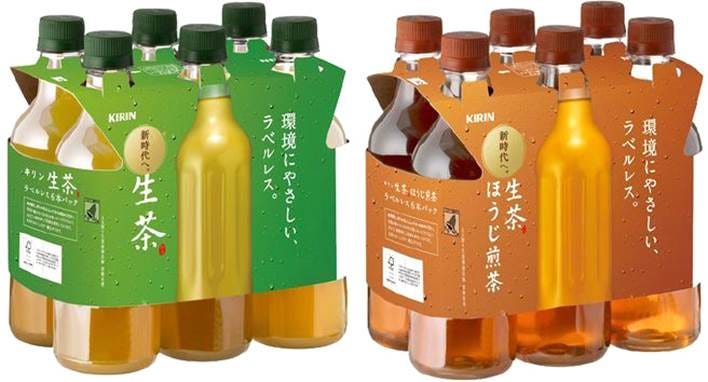
Label-less packaging can be used to differentiate a product with stylish design. Conventional PET bottles primarily rely upon advertising wrappers which are glued around each bottle to stand out from the competition. In contrast, label-less bottles appeal the value of unique products by imprinting directly on the PET bottle or changing the shape of the bottle. As a result, more creative designers have developed PET bottles themselves that have become fashionable and elicit a positive reaction from consumers. For example, under the supervision of a group of Swedish designers, LOHACO Water, was designed to be sold as a case of 20 bottles of drinking water. Each case contains slightly different PET bottles with a total of eight different designs on the bottle itself, two for each of the waterfall, drop, fog, and snow motifs that represent the process of water creation. Incidentally, LOHACO Water won the Good Design Award in 2019.
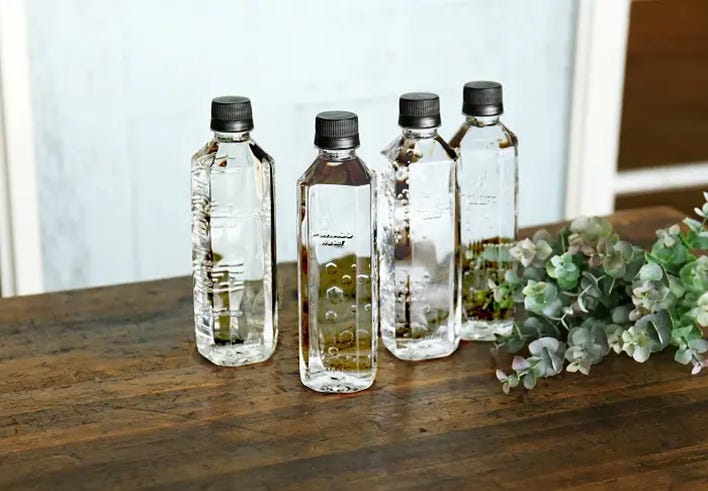
Yes, but: Regulatory authorities are still worried about the potential for problems when label-less bottles are “break-packed” and re-sold. Cardboard case packaging of label-less beverages purchased from mail-order websites carry the caution "Product for case sale only; Please do not open the package at the store.” This is intended to prevent food labeling and other information from being lost upon removal from its cardboard case. The intention is to limit the possibility of the distribution of label-less bottles to unspecified people, such as at town events. Such a practice could unfairly increase the responsibility on the manufacturer in terms of product liability.
If a purchaser individually distributes a box of label-less bottled beverages to an unspecified number of people and a food allergy or other problem occurs, the question is whether the responsibility falls on the manufacturer or the middleman who distributed the beverages individually.
What’s next: It seems likely that more and more manufacturers will jump on the bandwagon and continue to expand their label-less product product portfolio in Japan. Coca-Cola, Suntory, and Co-op have followed Asahi Soft Drinks with a steady stream of bulk-packaged drinks.
In addition, the regulatory environment will probably continue to be relaxed to make it easier for manufacturers to satisfy consumer demand. In 2020, the Ministerial Ordinance of the Law for Promotion of Effective Utilization of Resources was partially revised. This law allows for the omission of individual labeling as long as the recycling mark is displayed on the exterior. This has encouraged the shift to label-less products both via mail-order purchases and in the retail setting—even at convenience stores that tend to specialize in sales of small-unit packaging. In doing so, Asahi Soft Drinks and Suntory have achieved label-less sales by using a method in which the tags displaying ingredients and other information are hung around the neck of the bottle.
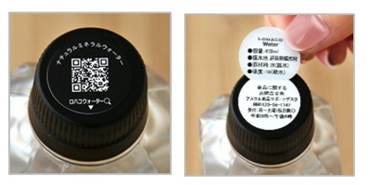
LOHACO Water also has a two-dimensional QR code on the top of the cap, which directs users to a product-specific website that includes more detailed information.
Innovative package design has long been associated with Japan, but the results have traditionally led to excessive levels of packaging. On a go-forward basis the focus seems, however, likely to shift to more of a minimalist approach that prompts both consumers and manufactures to appreciate how less can, in fact, be more.
Links to Japanese Sources: https://news.yahoo.co.jp/articles/c937534c2689ae4b824bb7a14911bd320ee90db2, https://www.asahiinryo.co.jp/labelless/, and https://www.fareastnetwork.co.jp/theme551/l-rm6766/
#labelless #packaging #individualpackaging #bulkpackaging #PETbottle #AsahiSoftDrinks #CocaCola #Suntory #Coop #LOHACOWater #ラベルレス #バラ売り #ペットボトル #アサヒ飲料 #コカコーラ社 #サントリー #生協





Japan’s innovative and eco-friendly approach to recycling links perfectly with a population that works as one to benefit each other and the entire country. Bravo!
Pam Baran
I buy labeless water. I like not having to remove the label before recycling the PET bottle.